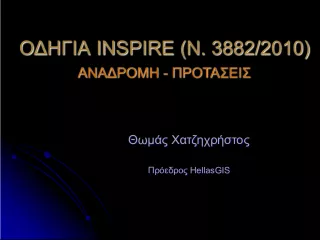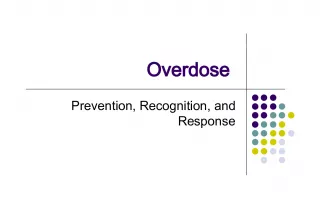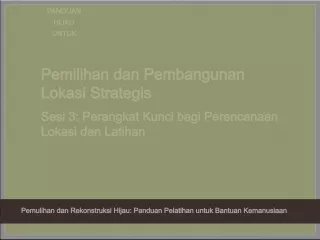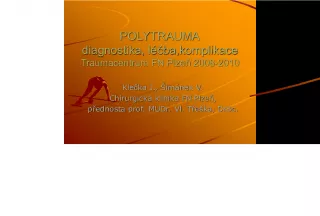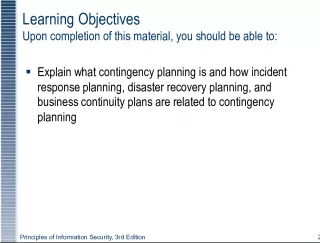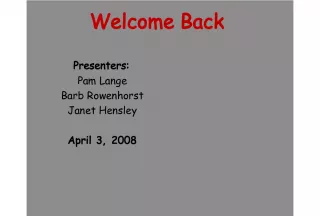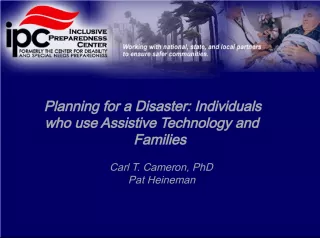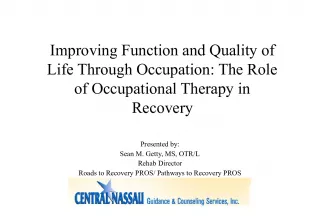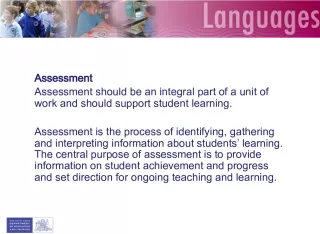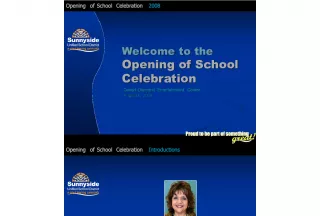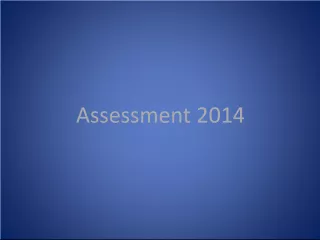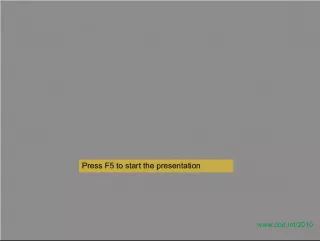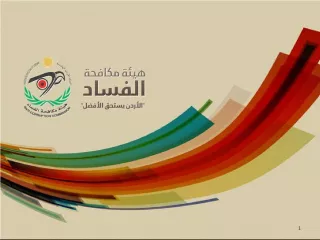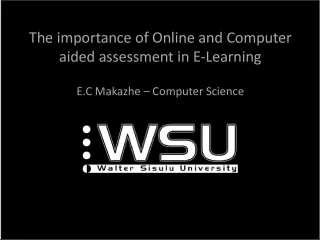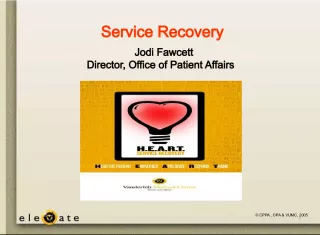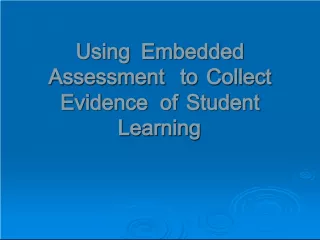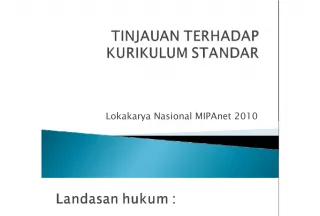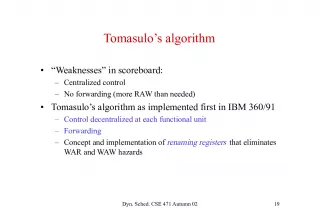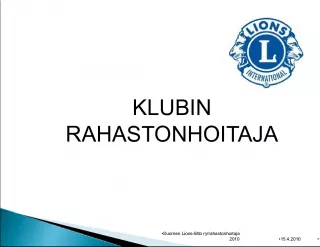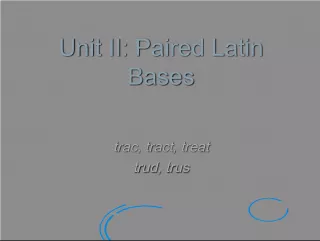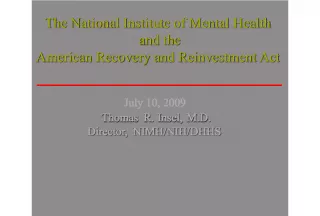Response Assessment and Recovery for the 2008-2010 Havasupai Reservation Floods
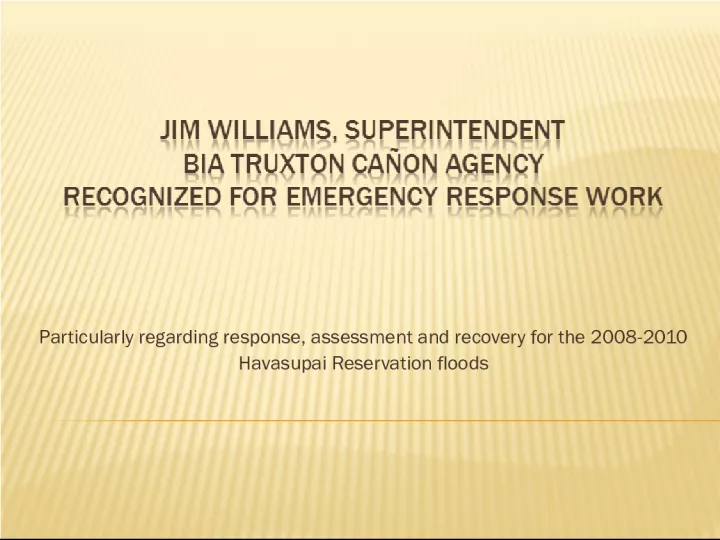

This article features Rodney McVey, the Deputy Director of Trust Service, who presents an award on December 22nd,
- Uploaded on | 3 Views
-
 helenice
helenice
About Response Assessment and Recovery for the 2008-2010 Havasupai Reservation Floods
PowerPoint presentation about 'Response Assessment and Recovery for the 2008-2010 Havasupai Reservation Floods'. This presentation describes the topic on This article features Rodney McVey, the Deputy Director of Trust Service, who presents an award on December 22nd,. The key topics included in this slideshow are . Download this presentation absolutely free.
Presentation Transcript
Slide1particularly regarding response, assessment and recovery for the 2008-2010Havasupai Reservation floods
Slide2Rodney McVey,Deputy Director, Trust Service, presents the award December 22, 2011. Pictures are of Mr. Williams Assisting trail evaluation, August, 2008 Pictures, Michael Redhair
Slide4mr. chuck mchugh, deputy director operations, arizona Division of Emergency ManagementMr. Rodney McVey, BIA Western Region Deputy Director Trust Resources Mr. Jim Calacal, Emergency Program Specialist, Federal Emergency Management Agency
Slide5Mr. Lou Trammell, Director, Arizona Division of Emergency Management Governors Napolitano and Brewer and their Native American Liaison staffers
Slide6Coconino County Emergency Management Havasupai Emergency Response Training Sponsored by County – Picture provided by Paul Hellenberg Evacuation – Picture, Angela Mattei County Emergency Management and Tribe Building a Partnership – Picture provided by Paul Hellenberg
Slide7The Air National Guard Pictures by Angela Mattei
Slide8Arizona Geological Survey Director Lee Allison Bryan Gootee, Research Geologist Tribal Council, Key Employees, Mitigation Plan Staff, ADEM, FEMA and Other Dignitaries at the January 2011 Disaster Declaration Signing. This declaration Represented a new way for Tribes to work directly with FEMA . Picture - Brian Gootee Byron Manakaja,Havasupai Hydrolgist- in-Training and all Things Regarding Community Flood Recovery Assessing October 2010 Flood Picture - Bryan Gootee
Slide9National Park Service Pictures by Angela Mattei and NPS Trail Evaluation Team
Slide10Bryan Bowker, Allen Anspach, Rodney McVey, William Walker Regional Directors
Slide11BIA Law Enforcement Picture by Angela Mattei
Slide12Agency Staff
Slide13Hualapai Tribal Emergency Services Picture by Angela Mattei
Slide14The Red Cross Picture by Angela Mattei
Slide15Edmond Tilousi, Agricultural Program Coordinator,Dally Hanna, Agricultural Program Operator. Pictures – Clarence Begay, David N. Smith. Michael Brownfield, Havasupai Tribal Campground Ranger Picture, Bob Hetzler
Slide16tribal council, havasupai wranglers, air west aviation.Pictures - David N. Smith, Michael Redhair, Chris English
Slide17michael redhair, roads engineer, trail /bridge evaluation.Pictures - Joe DeHoyos
Slide18mr. joe dehoyos, roads technician, trail evaluation.Pictures - Clarence Begay,
Slide19clarence begay, agricultural /structural engineer – Irrigation/BridgesPicture - Michael Redhair
Slide20Carlos Nosie, Fuels Specialist,Debris Removal Evaluation. Pictures - Bob Hetzler, David N. Smith .
Slide21David N. Smith, Range Conservationist,Agricuture and Campground Evaluation BAER Procedure Suport. Also shown, Jackson Brownfield, Havasupai Tribe Pictures - Carlos Nosie, Bob Hetzler .
Slide22bob hetzler, soil scientist, agriculture, debris flow,Potable Water, Recreation Evaluator, GIS Specialist. Picture - Joe DeHoyos
Slide23Garry Cantley, Regional Archaeologist,Edmond Tilousi, Tribal Cultural Specialist Pictures – Chris English
Slide24Has required coordination with many institutional players and people from many disciplines. Has worked within the existing structure of the Stafford Act. Has been a learning experience for all. One of the best lessons learned by the State At least 50% of Arizona’s Native American population live off- reservation, paying taxes supporting the State’s Emergency Response fund. This fact was the final justification for the State to respond to the Havasupai and other reservation emergencies with a stronger Government to Government basis. tce 20111228_0930
Slide25the 2008 assessment and subsequent report, based on wildland fire Burned Area EmergencyResponse (BAER) Planning, was circulated widely electronically and in a printed and bound format. The largest monetary response was from Southern California’s San Manual Band of Mission Indians, cultural cousins to the Havasupai. San Manuel donated $1,000,000, supplementing the funding and support of the other contributors. Work done between October 2008 and May 2009 prevented major damage to the Tribe’s tourism infrastructure during the major flooding July – September, 2010. The 2010 – 2011 response was done completely by Agency and Tribal Staff. The Tribe has continued working to lessen damage potential to its major assets, housing and facilities. December 28, 2011 Superintendent Williams reported, ”As a result of the 2008 and 2010 floods the Tribe purchased and is installing their own radio system for communication purposes and received their own radio frequency. We now have an Arizona Interoperable Radio System (AIRS) installed at Long Mesa to allow different agencies to communicate during disasters... (They are being encouraged ) … to become the Incident Commanders for their emergencies. Mr. Melvin Hunter, Sr. has provide training to them for incident commander procedures.
